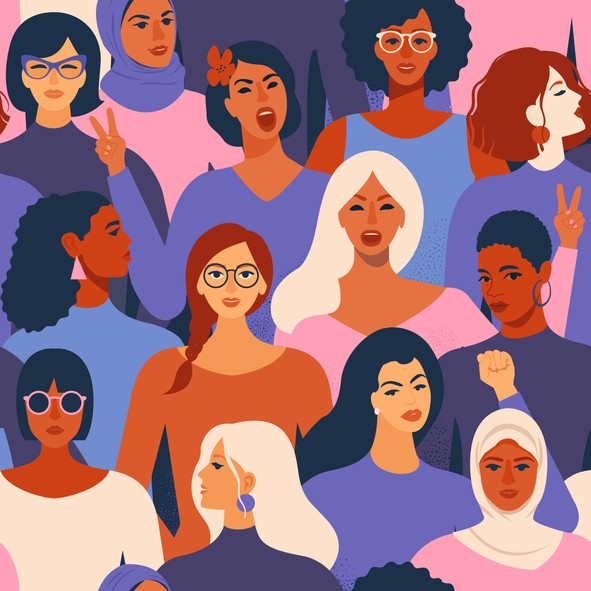As we celebrate the International Day of Happiness and Women’s History Month this March, I invite you to reflect on women’s happiness. We are faced with a paradox – despite the significant strides we’ve made toward gender equality, women are not as happy as they can be. It’s time to change that, and it starts with us.
Women have fought hard for their rights and opportunities in the workplace, education, and politics. We made significant progress. And yet, the feminist movement has evolved. Today, women want more than just equality. We want to lead with authenticity, to be celebrated for our unique strengths and abilities, to break free from gender stereotypes, and to live life on our own terms. We want to be whole.
As an executive coach, I have the privilege of working with many women leaders, both individually and through various peer advisory circles that I facilitate. I speak to dozens of female leaders every month, and I know firsthand that we don’t want to compete on men’s terms. We want equal opportunities and rights while staying true to ourselves. It’s time to unleash our authentic selves and use our unique strengths and abilities to lead with feminine intelligence.
But why are we so afraid of the word “feminine”? In my work, I’ve noticed an immediate reaction from clients when I bring up this word. It seems that for many feminists, embracing their own feminine intelligence is one of the hardest things to do. But why is that?
The cultural and social narratives surrounding femininity have long been negative and demeaning. The word has been associated with weakness, submissiveness, and inferiority, and various forms of media and cultural norms have perpetuated these associations. As a result, many of us have developed an aversion to the word and what it represents. Enough is enough.
What if we reframed our understanding of the feminine? What if we saw it as a source of strength, power, and resilience? Imagine embracing the feminine principle and integrating it with our masculine competencies to lead with wholeness.
Carl Jung, one of the most respected psychotherapists and thinkers, believed that feminine and masculine principles must be integrated into the conscious psyche. We must become aware of and reconcile the opposing psychological qualities represented by the feminine and masculine within each of us.
The feminine and masculine principles do not relate to gender – instead, they represent different psychological qualities. The feminine is associated with qualities such as emotionality, intuition, and creativity, while the masculine is associated with qualities such as logic, rationality, and assertiveness.
Overall, Jung highlights the importance of balancing and integrating different aspects of the psyche in order to achieve wholeness and happiness. This means that regardless of your gender, the rational mind and the emotional, intuitive aspects of your inner world must co-exist in harmony.
In our cultural context, rejection of the feminine means that we become slaves to the intellectual at the expense of being whole, and happy. As Einstein points out, the intuitive mind is a sacred gift, and the rational mind is a faithful servant. We have created a society that honors the servant and has forgotten the gift. We honor the masculine, and we have forgotten the feminine. Hence, the paradox of women’s unhappiness.
It’s time to challenge gender stereotypes and biases and lead with wholeness and authenticity. Let’s break free from the molds that society has created for us and embrace our true selves.
As women, we have the power to make a positive impact on the world. We can inspire change, break down barriers, and pave the way for future generations. Let’s do it with passion, courage, and with love. Let’s strive to create a world where women can live happy and fulfilling lives – integrating our feminine and masculine energies.
So, let’s stand up, speak out, and lead the way. It’s time to unleash our true potential and show the world what we’re made of. We got this!
With love,
Elina
